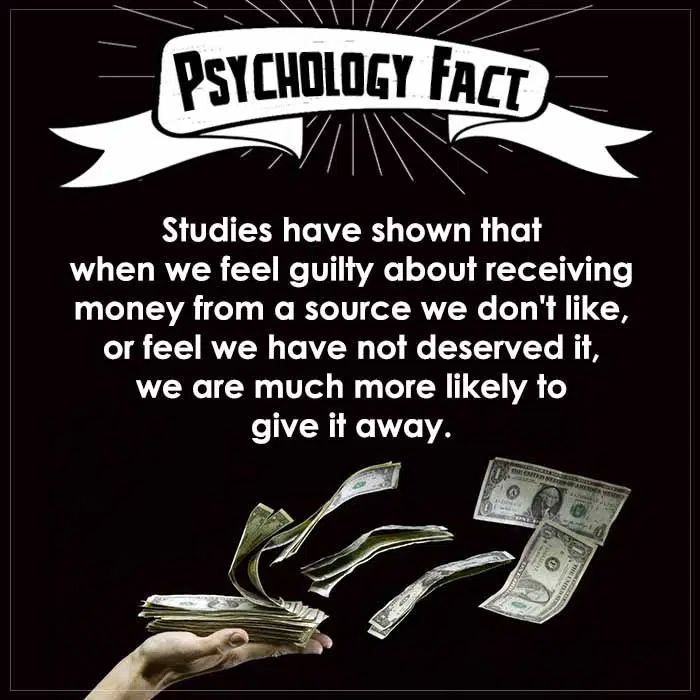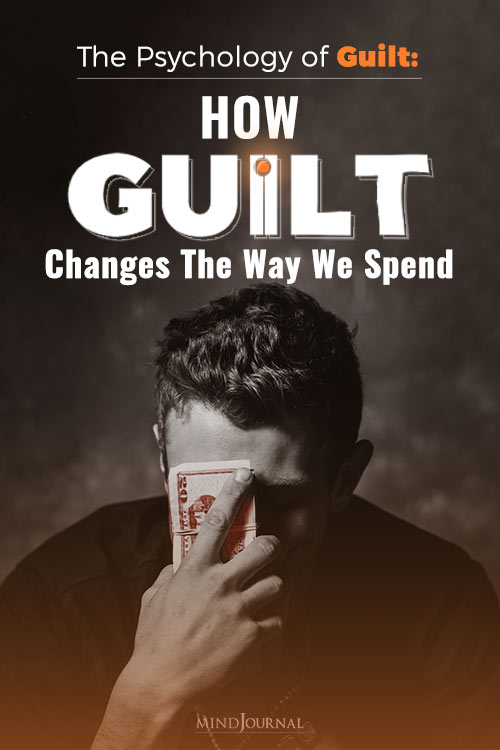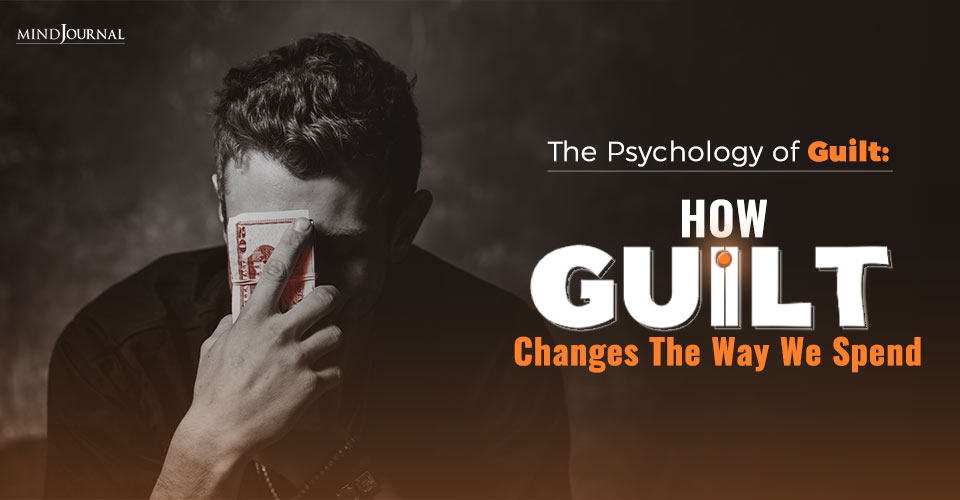A little guilt can go a long way, especially in terms of how we treat money. Read on to know the consumer psychology of guilt.
“True! —nervous —very, very dreadfully nervous I had been and am; but why will you say that I am mad? The disease had sharpened my senses —not destroyed —not dulled them.”
So begins Edgar Allen Poe’s famous The Tell-Tale Heart. It’s the story of a murderer who becomes so overcome with their guilt that they hallucinate the sounds of their dead victim’s heart. Guilt becomes a powerful character in the story, ultimately leading the murderer to uncover the body and admit their wrongdoing.
It’s arguably the most famous story about the power of guilt. It alludes to its complexity and mercurial potency. When we feel we’ve done something wrong, our psyche acts in a strange, unpredictable way to resolve this feeling.
Guilt isn’t an emotion reserved just for grim crimes. It’s an emotion we’re all familiar with, especially as consumers. To better understand its impact on how we spend, we need to dive into the neuromarketing of guilt.
Also read 8 Psychology-Based Signs Someone Secretly Has A Crush On You
The Consumer Psychology of Guilt
Many advertising campaigns use guilt as their primary emotion. Think of the anti-smoking ads. They target parents of young children with messages like, “When you smoke, they smoke.” And for every anti-texting and driving ad, there’s a graphic portrayal of a tragic accident caused by your inability to put down the phone.
This persuasion tactic makes complete sense. After all, we have a strong negativity bias—we’re more sensitive to things with potential harm than things that provide pleasure. Losing $20 hurts more than gaining $20 feels good. We’re more motivated to keep the $20 bill in our wallets than we are to gain a crisp new one.
Guilt, however, runs deeper than simple negativity. It emphasizes something that it assumes the person has already done. And because of this, it threatens our positive sense of self.
We’re all motivated to see ourselves in a positive light. If we’re led to believe we’ve done something wrong, we compensate for this in other ways.
Imagine accidentally bumping into an older woman while you’re crossing the street. Even though you didn’t mean to, this may damage your positive sense of self. To prove to yourself that you’re a good person, you’d go out of your way to do something highly moral. You may be inclined to give to a charity, check up on a friend, or walk the next old lady across the street.
You might not realize why you’re doing it, but guilt motivates you to compensate for your misdeed. A little guilt can go a long way.
This plays out in a similar way with our spending habits. If we feel bad about a purchase, it forces us to wrestle with a feeling, and we’re driven to alleviate it. Just like The Tell-Tale Heart, guilt itself becomes a character in the story, and we can’t predict its effect on our consumer behavior.
Also read 5 Psychological Reasons Behind Nail Biting
Guilt, Consumer Behavior, and Compensation
Most people think the use of sweatshop labor is unethical, and want there to be some form of punishment for corporations who use it. But who wants to punish sweatshops using corporations more? The answer is surprising: People who recently purchased goods made from sweatshop labor wanted stronger punishments for corporations who do so. Surprisingly, these people are also much more vocal and angry about their anti-sweatshop stance.

This all comes down to guilt:
When people feel complicit in moral wrongdoing, they try to alleviate this guilt and protect their images of themselves as good people. Again, a little guilt can go a long way.
Guilt about past purchases has a strange effect on future behavior. But the effect of guilt isn’t limited to products, but with money itself. From a rational perspective, money is fundamentally fungible—a dollar is a dollar is a dollar. But in practice, certain dollars can be infused with meaning—what psychologists call an “affective tag,” which then influences what that money is spent on.
Studies have shown that when we feel guilty about receiving money, or feel we haven’t deserved it, we’re much more likely to give it away. For example, if we receive it from a source we don’t like—in one experiment, it was the tobacco company Philip Morris—the money feels bad. And in response, we’re driven to cleanse ourselves of these negative feelings by spending it in a positive way, such as donating to charity.
In contrast, if we receive money through a relative or from someone we like, we’re much more likely to spend it on hedonistic things like ice cream. Unencumbered by the conflict of tainted money, we feel free to spend this on ourselves.
Obtaining guilty money creates an internal conflict:
We want money, but we also want to feel as though we’re good people. Classic cognitive dissonance. If we accept money made from dirty, immoral ways, we naturally feel compelled to resolve this so we can tell ourselves we’re still good people, alleviating this dissonance and maintaining a positive self-image.
In this way, receiving guilty money leads us to act in a highly moral manner, to compensate. Depending on the source of the guilt, it leads us to act in specific, compensatory ways. Research has found that if the money comes from a moral violation, the person will spend it in prosocial ways, like giving to a charity.
On the other hand, if the money comes about from personal guilt (such as a failure of self-control), this increases spending on things self-improvement-related, such as exercise equipment or meditation apps. Whatever flaw the money highlights, we spend in a way that compensates for it. Money is the sin, consumerism is the confessional.
Guilt is a mercurial emotion and a potent force in our lives. And when we view it through the lens of neuromarketing, we can clearly see its impacts on our purchasing decisions. In short, guilt leads us down a similar path as our original protagonist:
“I admit the deed! —tear up the planks! here, here!”
Edgar Allen Poe may have just described The Tell-Tale Consumer
Also read The Psychology Of Toxic Leaders
Please share this article with anyone who you may think will find it valuable and helpful.
References Allard, T., & White, K. (2015). Cross-Domain Effects of Guilt on Desire for Self-Improvement Products. Journal of Consumer Research, 42, 401-419. Gino, F., & Mogilner, C. (2014). Time, money, and morality. Psychological science, 25 2, 414-21 . Levav, J., & Mcgraw, A. P. (2009). Emotional Accounting: How Feelings about Money Influence Consumer Choice. Journal of Marketing Research, 46(1), 66–80. https://doi.org/10.1509/jmkr.46.1.66 Park, H.Y., & Meyvis, T. (2019). Moral Accounting: How Consumers Spend Money Tainted by Guilt. Cognition & Culture: Culture.
Written by: Matt Johnson, Ph.D Originally appeared on: Psychlogy Today Republished with permission









Leave a Reply
You must be logged in to post a comment.